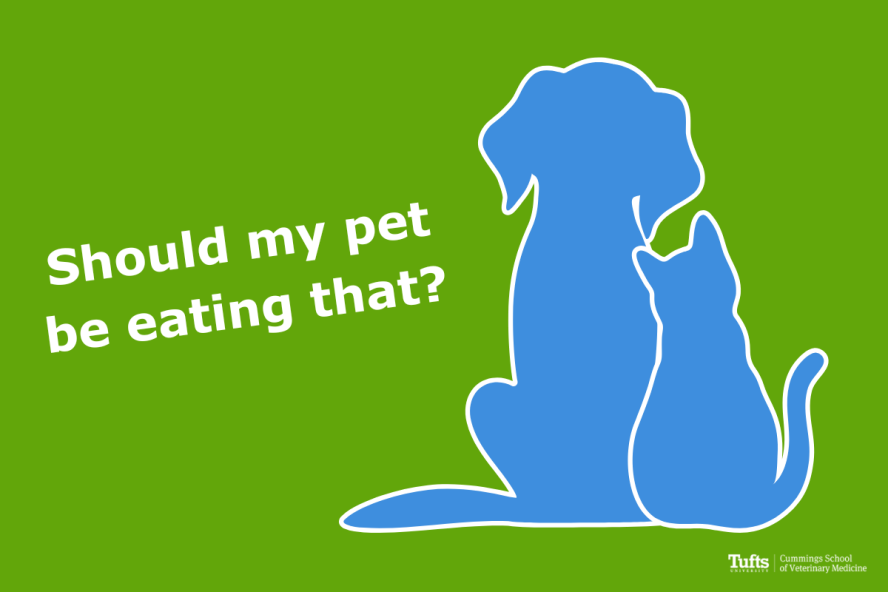-
About
- Leadership & Faculty
- News & Events
-
Academics
- Graduate
- Advanced Clinical Training
- Continuing Education
- Academic Departments
- Academic Offices
- Simulation Experiences
-
Student Life
- Offices
-
Research
-
Hospitals & Clinics
- Emergency Care
- Hospital Services
-
Community Outreach
- Volunteer
Keeping Pets Safe During This Season
Five things to know

As a season of gathering is upon us, when rich foods will fill our homes, Board Certified Veterinary Nutritionists® at Cummings School of Veterinary Medicine at Tufts University merrily share advice to help keep dogs and cats safe.
For dogs, avoid:
- Rich, fatty foods (turkey skin or meats/vegetables cooked in oil may cause vomiting or pancreatitis)
- Uncooked foods (or licking cookware used in prep of raw meats)
- Chocolate (can be toxic, cause GI upset, tremors, seizures, and is potentially fatal)
- Xylitol sugar substitute (extremely toxic, can cause hypoglycemia, liver failure, or death)
- Raisins/grapes (can cause kidney failure or disease)
- Garlic and onion (can cause blood problems)
- Macadamia nuts (can cause weakness in the back legs, vomiting and diarrhea)
For cats, avoid:
- Chocolate, bones, unfamiliar foods (could cause upset stomach, vomiting)
- Uncooked foods or (or licking cookware used in prep of raw meats)
- Onion/garlic (the flavoring in many prepared dishes can cause vomiting, diarrhea)
- Flowers and plants, such as lilies (can be fatal), poinsettias, holly, and mistletoe
- String/bows (from presents) and tinsel (on the tree, can be fatal if it causes an obstruction in the intestines)
If you suspect your pet has potential toxicity from ingesting a food item of concern, call your veterinarian or the ASPCA Animal Poison Control Center at (888) 426-4435.
Petfoodology
Interested in learning more about healthy nutrition for your pets? The Petfoodology blog from our veterinary nutrition specialists and experts at Cummings School of Veterinary Medicine is a great resource.
Department:
Foster Hospital for Small Animals